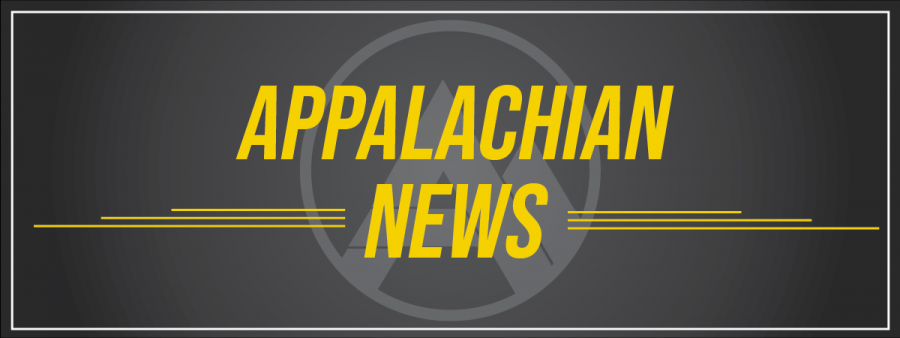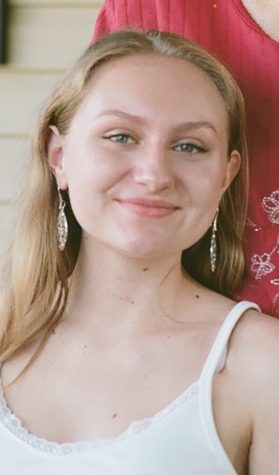App State and the Department of Anthropology welcomed Salah El Sadi to speak April 5 about his work and efforts toward solving the contaminated water problem in Gaza.
Plemmons Student Union hosted students, faculty and locals to El Sadi’s presentation about the Blue Filter Project, a project committed to using green resources free of chemicals to mitigate groundwater contamination in Gaza. El Sadi, a Gazan water scientist, used this time to present his product, Blue Filter, crafted from chia seeds, and discuss his findings.
El Sadi said his research began in 2019 when he began his master’s degree program. From his research, the Blue Filter Project officially began in 2021. El Sadi said his idea to use chia seeds to remove pollutants from water came from examining others’ research and noticing a pattern among scientists using plants, leaves and other plant materials, but none were using chia.
“All my life, I’ve been looking to be a distinguished man — I used this to be the first one to use chia seeds around the world and to be distinctive in my research,” El Sadi said.
El Sadi first tested his product in Gaza, where he said more than 97% of Gaza’s water is polluted with high concentrations of salinity, nitrate and chloride due to farmers’ misuse of fertilizers. Because of the high pollution levels, farmers must purchase water from desalination plants, which is very expensive, El Sadi said.
“The water from the syringe plant is not good for irrigation because there are no minerals, which are important for plants,” El Sadi said.
El Sadi first tested his product with farmers, performing tests across 50 farms. His results showed that his solution, treated chia seeds, purified water “without any chemical additive, electricity, power or energy,” with a 98% removal efficiency.
El Sadi also said that Blue Filter was cheap compared to his competitors and that “all Blue Filter components were recyclable.”
“There is no waste; I can recycle filters and use them more than 30 times. There is no ecological impact and zero waste,” El Sadi said.
El Sadi also said he uses surface plants, such as azolla, to attract pollutants in water filtered through his product. The collected pollutants can later be used as fertilizer or feed for farmers.
El Sadi said he believes this cycle “has the power to improve farmer financial condition with opportunity and increase the productivity of agriculture crops.”
He has already seen success with his product, receiving “a lot of certifications” from international and local associations regarding proof of concept and claiming first place out of 120 European universities with his thesis.
His next venture is to turn his research into a company, as he is still only in the prototype stage. He plans to take it further to treat another common water contaminant: salinity.
El Sadi said he is currently developing natural filters to treat water salinity, which he admits is a big challenge for him.
“If I succeed in this project, I think I will make a change in the world,” El Sadi said.
Salma Treish, a senior public health major and event coordinator for the Muslim Student Association, said she collaborated with Hammad Chaudhry, a junior art and visual culture major and President of the Muslim Student Association, and High Country Peace and Justice, a local grassroots organization, to bring El Sadi to App State.
“It all kind of started out being like where we threw an event to fundraise for him — he’s trying to get his family out of Gaza because he’s here on a Fulbright fellow,” Treish said about El Sadi.
Some Fulbright commissions are currently not allowed to travel due to “concerns about visa restrictions and border access,” according to the Fulbright Scholar Program. Treish said that the initial fundraiser for El Sadi turned into something more, thus landing him in Plemmons Student Union.
El Sadi said the situation in Gaza “disappoints and frustrates” him because of the lost opportunities he’s faced with his company and his separation from his family. In the past six months he’s spent in North Carolina, El Sadi said he’s lost 10 international opportunities to promote his work, opportunities he said “not everyone is accepted to participate in.”
“I’m now thinking of my father, mother, sister, sister, brother, my wife, my two small, little kids. How can I help them to evacuate from Gaza?” El Sadi said.
El Sadi said he’s disappointed to be in the U.S. because, as this is his first time here, he struggled to find help promoting his patents to “change his situation.”
“I’m really looking to find anyone to give me this opportunity because this opportunity will accelerate to bring my family out of Gaza,” El Sadi said.


